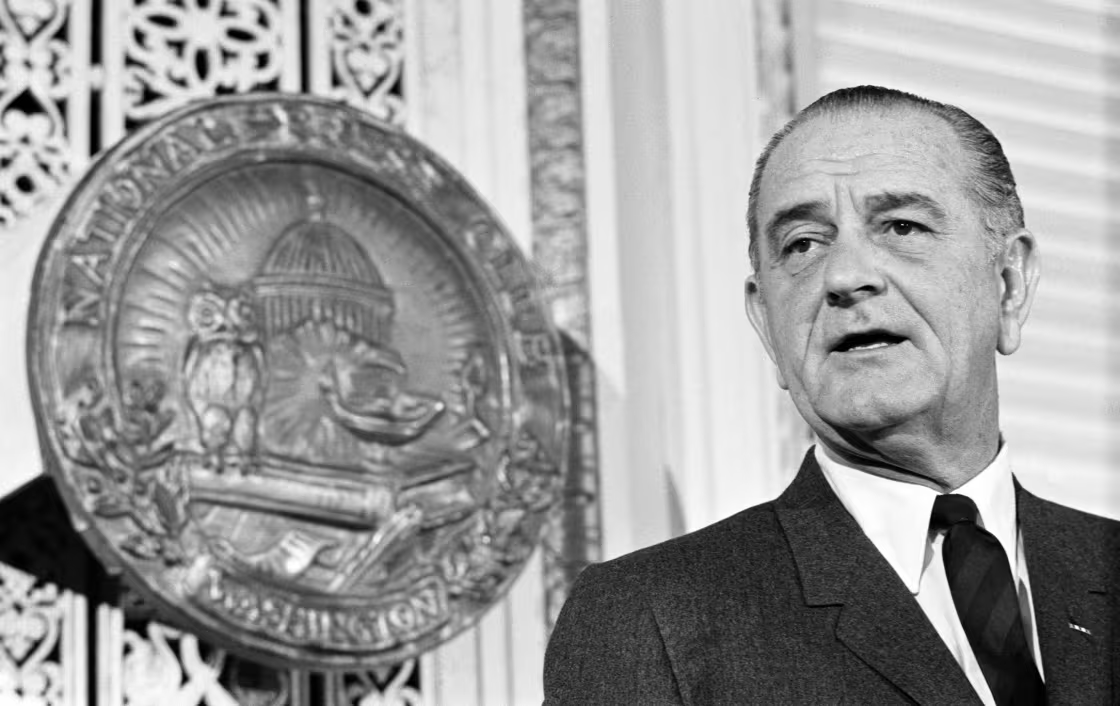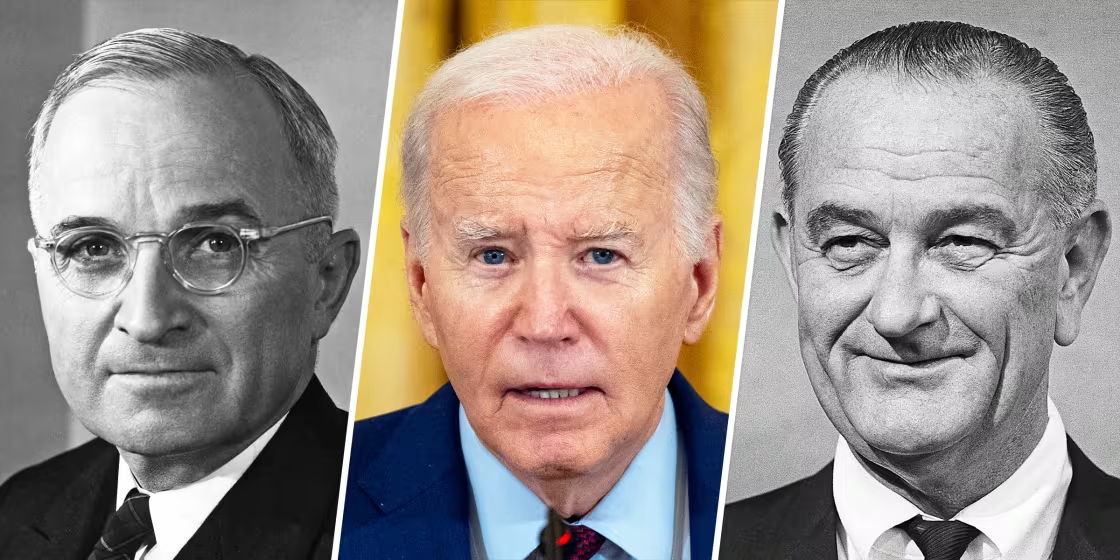Voters are experiencing a situation that no American electorate has ever faced in the nation's history.
President Joe Biden's announcement on July 21 that he is no longer running for reelection marks the latest an incumbent president has ever called off his campaign, with his stunning decision coming less than four months before the 2024 election.
Columnist and MSNBC analyst Jonathan Alter, the best-selling author of books on Presidents Barack Obama, Jimmy Carter and Franklin D. Roosevelt, told TODAY.com that Biden's decision was "unprecedented in terms of timing."
“There are some very facile comparisons to Lyndon Johnson and Harry Truman that have been going around, but this is much different," Alter said.
Get top local stories in Southern California delivered to you every morning. >Sign up for NBC LA's News Headlines newsletter.
Here's what to know about how Biden's decision compares to other incumbent presidents who chose not to run again.

When was the last time an incumbent president did not run for reelection?
U.S. & World
News from around the country and around the globe
Biden's announcement made him the first sitting president to end a reelection campaign since Lyndon B. Johnson in March of 1968.
The only other president in the past 75 years to call off his campaign was Harry Truman, who did it in March of 1952.
Biden's decision comes four months later than Truman and Johnson bowed out of their respective races. Both had ascended to the presidency following the death of their predecessors, John F. Kennedy and Franklin D. Roosevelt, and both were mired in unpopular wars at the time.
Before dropping out, one of the candidates Johnson faced for the 1968 nomination was incumbent Vice President Hubert Humphrey.
Johnson also faced a Democratic Party fractured by the Vietnam War, with segregationist candidate George Wallace siphoning off votes with a third-party run.
Humphrey earned the nomination after a contentious Democratic National Convention and went on to lose to Republican Richard Nixon in the general election.
"Humphrey was a stronger candidate (than Johnson), and there were also deep fissures in the Democratic Party that don't exist today," Alter said. "I think it's a difficult comparison to make (between then and now)."
Truman, meanwhile, had low approval ratings due to the Korean War and scandals in his administration, which left him reluctant to run again.
Illinois Gov. Adlai Stevenson earned the nomination and lost in a landslide to Republican and World War II hero Dwight D. Eisenhower.
The wives of both Johnson and Truman also urged them not to pursue reelection, Alter noted.
"I don’t think the circumstances of Biden’s departure will be remembered for more than five minutes, because he committed a selfless act," Alter said. "Instead of being compared to someone clinging to power, he'll be compared to the Roman statesman Cincinnatus and George Washington, and that's very good company."
Which other incumbent presidents have not run for a second term?
Calvin Coolidge, Teddy Roosevelt, Rutherford B. Hayes, James K. Polk and James Buchanan also did not pursue reelection after their first full terms in office.
Each announced at least a year before the election that they would not be making a run at a second consecutive term. Buchanan retired, Polk left in poor health and died only months after his term ended, and Hayes announced in advance that he would only serve one term, according to the official White House website.
Coolidge announced in 1927 that he was choosing not to run for reelection in 1928, shortly before the Great Depression began.
Roosevelt, who took office in 1901 after the assassination of William McKinley and was elected on his own in 1904, did not initially seek a second elected term.
But three years after leaving office, he ran again in 1912 on a third-party Progressive ticket and lost to Democrat Woodrow Wilson.

How does the 2024 Democratic contest compare to the 1968 Democratic National Convention?
Over the past 50 years, the majority of national conventions for both major parties have functioned as de facto coronations, as the leading candidates have typically secured delegate support well in advance.
In 1976, Republicans went into their convention undecided with a choice between incumbent President Gerald Ford and Ronald Reagan, who would go on to win the presidency in 1980.
The last election where there wasn't a clear favorite on the Democratic side was in 1968 after Johnson dropped out of the race five months before the convention.
Johnson's decision made it a three-way competition for the Democratic nomination between incumbent Vice President Hubert Humphrey, Sen. Robert F. Kennedy and Sen. Eugene McCarthy.
Kennedy was assassinated in June 1968 ahead of the convention, making the nomination primarily a contest between Humphrey and McCarthy, who took opposing stances on whether to remain in the Vietnam War.
The convention magnified deeply divided factions among the Democratic party over Vietnam, resulting in riots and violent clashes between protesters, the Chicago police and the National Guard.
This year's Democratic convention will also be in Chicago — with a nomination still being contested.
Alter, who attended the 1968 convention as a 10-year-old alongside his parents, doesn't see many similarities outside a few superficialities.
"The difference between the Democratic Party of 1968, which was deeply divided over Vietnam, and the current Democratic Party, which has no discernible ideological fissures right now, it's at all so stark that the comparison is almost worthless," he said.
Biden has endorsed Vice President Kamala Harris as the nominee, but nothing will be official until the roughly 4,000 Democratic delegates from across the country cast their votes at the convention.
Alter does not envision any turbulence with others challenging Harris for the nomination at the convention, which begins on Aug. 19.
"Zero chance," he said. "Simply not going to happen. All the potential rivals, they all endorsed her."
This story first appeared on TODAY.com. More from TODAY:



